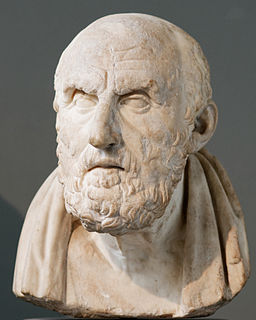A Quote by Edward Gibbon
[The] events by which the fate of nations is not materially changed, leave a faint impression on the page of history, and the patience of the reader would be exhausted by the repetition of the same hostilities [between Rome and Persia], undertaken without cause, prosecuted without glory, and terminated without effect.
Related Quotes
What has history said of eminence without honor, wealth without wisdom, power and possessions without principle? The answer is reiterated in the overthrow of the mightiest empires of ancient times. Babylon, Persia, Greece, Rome! The four successive, universal powers of the past. What and where are they?
Bibles read without prayer; sermons heard without prayer; marriages contracted without prayer; journeys undertaken without prayer; residences chosen without prayer; friendships formed without prayer; the daily act of prayer itself hurried over, or gone through without heart: these are the kind of downward steps by which many a Christian descends to a condition of spiritual palsy, or reaches the point where God allows them to have a tremendous fall.
Muscles without strength, friendship without trust, opinion without risk, change without aesthetics, age without values, food without nourishment, power without fairness, facts without rigor, degrees without erudition, militarism without fortitude, progress without civilization, complication without depth, fluency without content; these are the sins to remember.
He was a foe without hate; a friend without treachery; a soldier without cruelty; a victor without oppression, and a victim without murmuring. He was a public officer without vices; a private citizen without wrong; a neighbor without reproach; a Christian without hypocrisy, and a man without guile. He was a Caesar, without his ambition; Frederick, without his tyranny; Napoleon, without his selfishness, and Washington, without his reward.
Debt is so ingrained into our culture that most Americans can't even envision a car without a payment ... a house without a mortgage ... a student without a loan ... and credit without a card. We've been sold debt with such repetition and with such fervor that most folks can't conceive of what it would be like to have NO payments.
The first step to the knowledge of the wonder and mystery of life is the recognition of the monstrous nature of the earthly human realm as well as its glory, the realization that this is just how it is and that it cannot and will not be changed. Those who think they know how the universe could have been had they created it, without pain, without sorrow, without time, without death, are unfit for illumination.
We often wonder why God gives and takes, constricts and expands. What we forget is that human beings understand things by their opposites. Without dark, we can’t understand light. Without hardship, we wouldn’t *experience* ease. Without the existence of deprivation and loss, we couldn’t grasp the need for gratitude or the virtue of patience. And without separation, we wouldn’t taste the sweetness of reunion. Glory be to the one who gives—even when He takes.
Frightened of change? But what can exist without it? What's closer to nature's heart? Can you take a hot bath and leave the firewood as it was? Eat food without transforming it? Can any vital process take place without something being changed? Can't you see? It's just the same with you - and just as vital to nature.







































